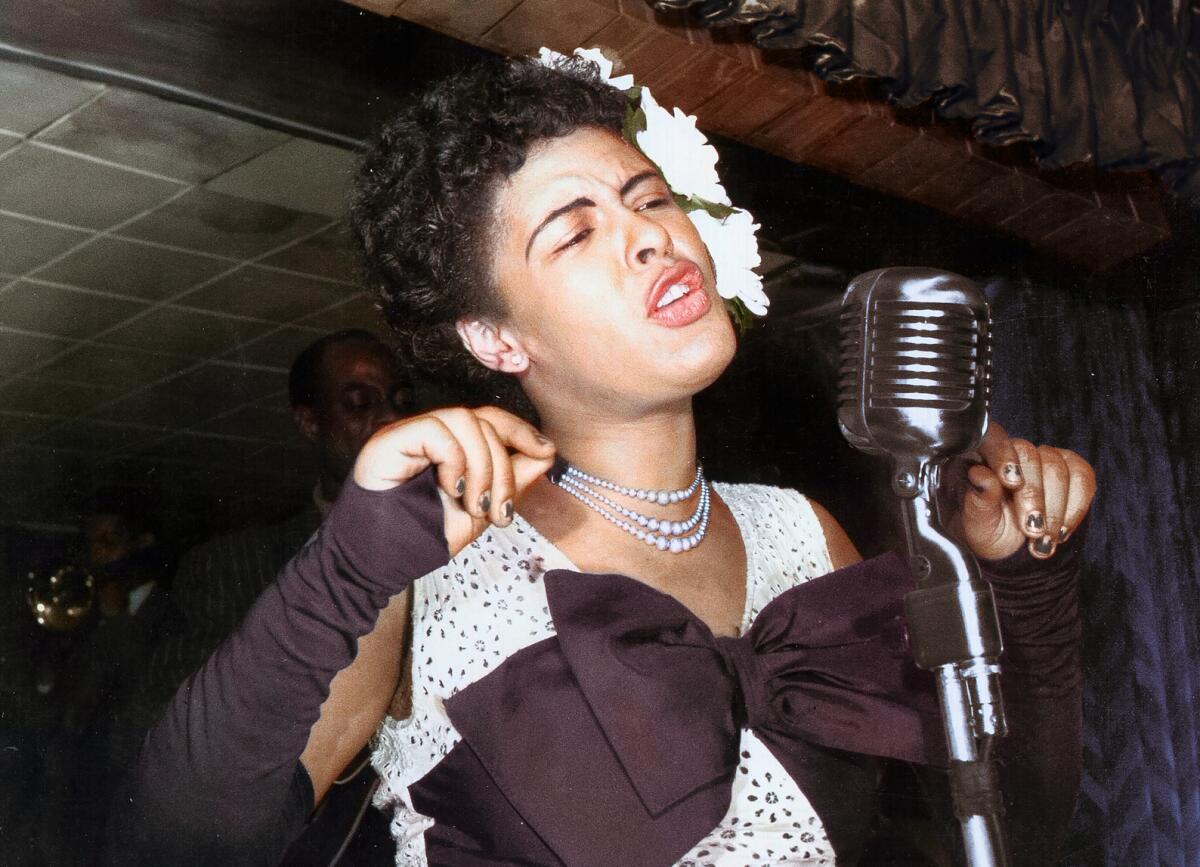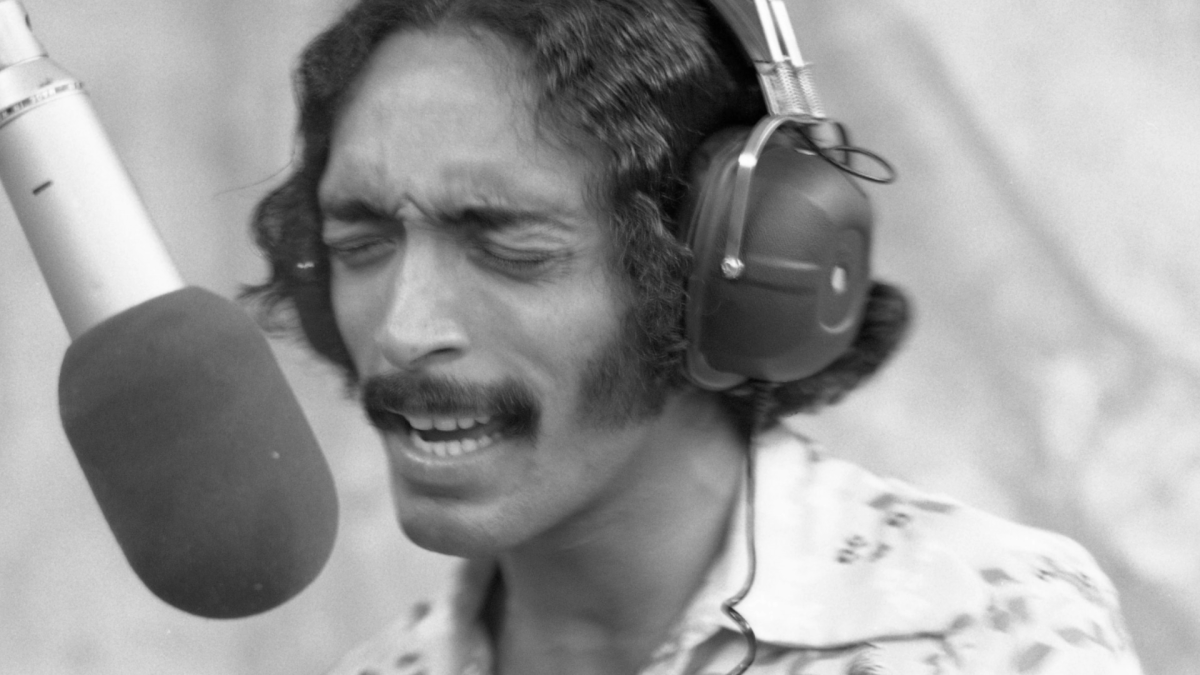Review: New documentaries focus on musicians from Shane MacGowan to Billie Holiday

‘Crock of Gold: A Few Rounds With Shane MacGowan’
Though he’s hardly a household name, the Irish singer-songwriter is responsible for one of the best-known songs of our time: the controversial modern Christmas standard “Fairytale of New York,” which he co-wrote with Jem Finer of his band the Pogues, and which he sang alongside the great vocalist Kirsty MacColl. Fans of punk, folk and traditional Irish music know too that MacGowan and the Pogues were responsible for some of the most thrilling and beautiful music of the 1980s, marrying the imagery and insight of great literature with the frenzied stomp of rock ’n’ roll.
Those same fans are probably also aware that MacGowan has a reputation as … well, a bit of a tippler. Director Julien Temple makes a joke of that with the full title of his documentary. MacGowan has reportedly eased off considerably from the days when his prodigious drinking got him kicked out of the Pogues — who by the ‘90s found it harder to work around their frontman’s frequent onstage descent into incoherence. Nevertheless, he appears in the film decidedly impaired by a lifetime of ill health and hedonism.
“Crock of Gold” isn’t intended as a lament for an artist derailed by his worst impulses, though. Instead, it’s a celebration of what MacGowan accomplished at his peak, as well as an explanation of the experiences that informed his music. Temple has access to a wealth of old footage, including a lot from the days when MacGowan was a more energetic performer — and a more articulate interview subject. He combines this with animation and clever clips from old movies, similar to what he did with his acclaimed 2000 Sex Pistols documentary “The Filth and the Fury.”
Running more than two hours, “Crock of Gold” will probably appeal most to those who already love MacGowan’s songs, especially since Temple doesn’t really get to the Pogues era until the second half. Still, for those devotees — and for anyone who one day ventures beyond “Fairytale” — this movie is a must. It’s a rousing and illuminating tribute to a brilliant musician who burned out quickly, but burned so brightly.
‘Crock of Gold: A Few Rounds With Shane MacGowan’
Not rated
Running time: 2 hours, 9 minutes
Playing: Available Dec. 4 on digital and VOD
——————-
‘Billie’

The Times is committed to reviewing theatrical film releases during the COVID-19 pandemic. Because moviegoing carries risks during this time, we remind readers to follow health and safety guidelines as outlined by the Centers for Disease Control and Prevention and local health officials.
James Erskine’s haunting and thorny documentary tells two stories. One is about Billie Holiday, the influential jazz vocalist who struggled with drug addiction and racism before dying at age 44. The other is about Linda Lipnack Kuehl, a journalist who spent the better part of a decade gathering interviews for a Holiday biography, which she left unfinished when she herself died in 1978 under mysterious circumstances.
The bulk of Erskine’s film consists of Kuehl’s audiotapes, playing over stock footage and archival photographs. To that he adds vintage radio interviews with Holiday herself, along with some rare newsreel and TV footage of the singer, and a few interviews with people who knew Kuehl.
“Billie” is mostly about Holiday’s many ups and downs, as told by the friends and fellow musicians who witnessed her bad relationships and bad decisions — as well as her phenomenal talent — up close. It’s also about how those interview subjects sometimes pushed back against Kuehl, questioning whether a white woman had the proper perspective to do Holiday justice.
One obvious point of comparison for “Billie” is Raoul Peck’s 2016 masterpiece “I Am Not Your Negro,” which uses a partial James Baldwin manuscript as the frame for a more comprehensive documentary about the author’s life and work. Erskine’s film isn’t in the same class as Peck’s. It’s far too scattered, and the visual accompaniment to the audio archives is often either uninspired or distractingly busy.
Regardless, this is one of the most detailed portraits of Holiday ever put on film; making the biographer into her own character in this documentary was ultimately a smart choice. “Billie” isn’t just about the stories we tell about great artists. It’s also about why we tell them — and whether we can ever really get them right.
‘Billie’
Not rated
Running time: 1 hour, 37 minutes.
Playing: Starts Dec. 4 in limited release where theaters are open; also on VOD
———————
‘The Changin’ Times of Ike White’

Not since “Searching for Sugar Man” has there been a music documentary as surprising as “The Changin’ Times of Ike White.” It starts as the simple story of a mostly forgotten 1970s R&B singer-songwriter: a talented and charismatic performer who once had a fleeting moment of fame when he recorded an album while serving time in prison. The movie then becomes a kind of existential mystery, once filmmaker Dan Vernon starts digging into White’s personal archives of photos, documents and audio and videotapes.
What the director finds is a treasure trove of wonderful unreleased music … as well as startling evidence that “Ike White” had multiple other names, personas and families. Even though Vernon spent time with the affable, gregarious White — listening to his stories and watching him play — he realizes by the end of his film that he doesn’t really know the man at all.
Given how much there is to unpack about the many lives of Ike White, “Changin’ Times” is too short, and it ends rather abruptly. Perhaps that’s a function of Vernon not having enough footage of the man himself — or not trusting anything White told him. Even the women who loved White heard conflicting stories about his childhood and his career, and about why he went to prison in the first place.
Still, there’s something apt about someone as elusive as White becoming the subject of a documentary so frustratingly incomplete. Like White’s music, this film is catchy and engaging, and it leaves its audience wondering why there isn’t more.
‘The Changin’ Times of Ike White’
Not rated
Running time: 1 hour, 19 minutes
Playing: Available Dec. 4 via virtual cinemas, including Laemmle Theatres, Lumiere Cinema and the Frida Cinema
——————-
‘Tripping With Nils Frahm’

If you closed your eyes and just listened to this concert film, what you’d hear would be a mesmerizing mix of rhythmic electronic tones and pretty soundscapes, combined in songs that run the gamut from the softly dreamy to the hectic and propulsive. It’s the kind of music that evokes abstract images of colorful patterns, zipping pleasantly by.
“Tripping” director Benoit Toulemonde doesn’t try to compete with whatever might be in the listeners’ heads, though. Instead, he keeps his cameras trained in closely on Frahm — sometimes watching just his hands — as the German composer hops among instruments and mixing boards, creating this remarkable music in real time.
It’s a bold choice to count on Frahm alone to provide enough visual excitement to fill a 90-minute movie. But watching him at work — and hearing the audience react whenever he hits an especially tricky stretch of moving between keyboards — is little like watching an athlete at the top of his game.
‘Tripping With Nils Frahm’
Not rated
Running time: 1 hour, 27 minutes
Playing: Available on Mubi
More to Read
Only good movies
Get the Indie Focus newsletter, Mark Olsen's weekly guide to the world of cinema.
You may occasionally receive promotional content from the Los Angeles Times.






